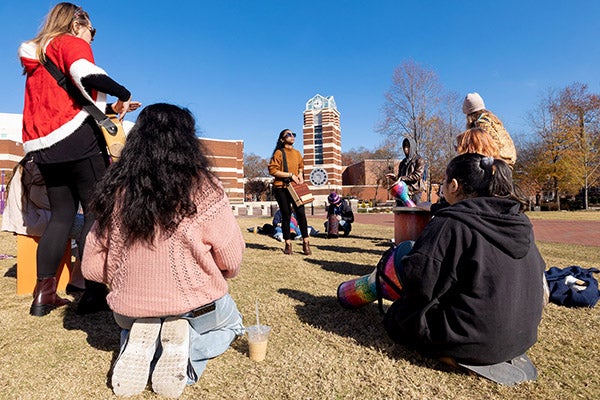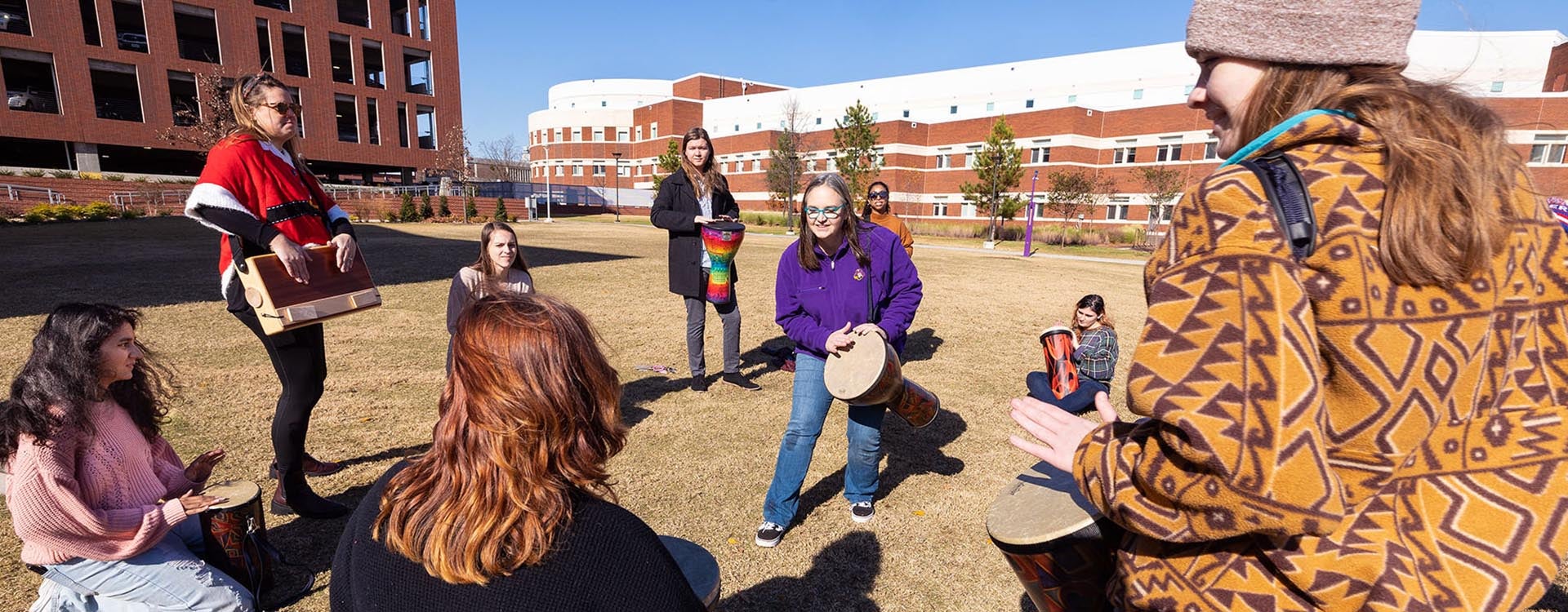Hitting finals: Drumming helps students de-stress
The final exam for East Carolina University’s music therapy group activities course was a hit for students in and out of the classroom.
Virginia Driscoll’s students set up on the Main Campus Student Center lawn, where they encouraged Pirates walking by to take a break from studying and drum with the class.

East Carolina University music major Sheleise Melendez leads group drumming on the Main Campus Student Center lawn. (Photos by Rhett Butler)
Music therapists are skilled musicians who provide services for people of all ages, from toddlers to the elderly, in a variety of settings using different instruments and methods to help reduce or manage pain and stress, improve communication skills, or assist in rehabilitation.
The School of Music students took turns leading group drumming, directing and changing the tempo with hand gestures, eye signals, arm movements and even stomping their feet.
Sheleise Melendez, a senior music major and classical pianist from Raleigh, said the exam’s format lowered her own stress level while giving her the opportunity to demonstrate what she’s learned this semester. “This is what we’re going to do for the rest of our lives in some capacity. It’s great to have something at the end of the semester that quantifies all the skills that we’ve been learning as opposed to sitting and writing for two hours,” Melendez said. “This is the most fun I’ve had during exam week — probably ever.”
Part of Melendez’s clinical experience this fall included leading drumming with adolescents at a substance use and mental health treatment facility. Using music to help people is what attracted her to the field.
“I really love the feedback I get from people in real time. I can see what I’m doing, and they have a response to it,” she said. “To see that I facilitated music that caused a positive change in someone, that means the absolute world to me because music has done so much for me. The fact that there’s research-based, scientific practice with specific techniques that we can use to help people, and knowing that I can have some sort of influence to help people be the best version of themselves and that they can reach whatever goals that they have — I love that I can do that with music.”
It’s the first time Driscoll has given a final exam outside the classroom. The community activity allowed the students to work with non-music majors to implement techniques, higher-level concepts, best uses and leadership skills that have been discussed in class.
“It’s easy to do it theoretically in class; it’s a different thing when you’re out here,” Driscoll said. “This is great for social connections, it’s great for dopamine and endorphin releases because you can hit something and it’s OK, you don’t get in trouble — that’s the purpose. It’s something you can’t do wrong.”
The core of the course has focused on breaking down barriers, how to simplify and create activities for anyone regardless of ability, Driscoll said. “You can make a mistake and it’s fun. We build success in everything we do.”

Assistant professor Virginia Driscoll leads students in group drumming outside at the student center.